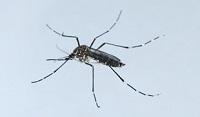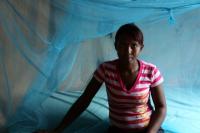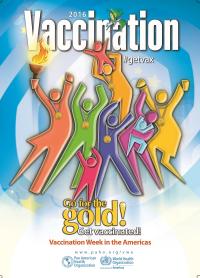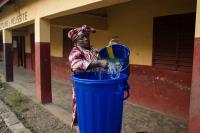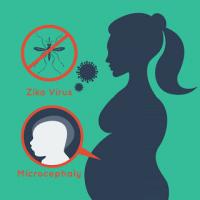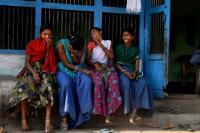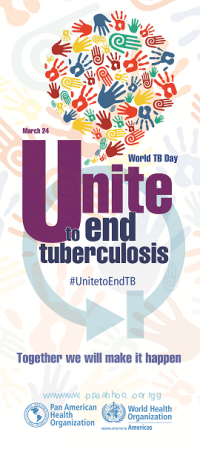You are here
News
-
05/13/2016 - More than 80% of people living in urban areas that monitor air pollution are exposed to air quality levels that exceed the World Health Organization (WHO) limits. While all regions of the world are affected, populations in low-income cities are the most impacted.
-
05/13/2016 - The World Health Organization (WHO) and the Pan American Health Organization (PAHO) recognize that athletes and visitors are seeking more information on the risks of Zika and ways to prevent infection while attending the 2016 Rio Olympic and Paralympic Games (5 August to 18 September 2016).
-
05/10/2016 - The House of Representatives approved the text of the headquarters agreement between Brazil and UNASUR, signed in Asuncion in 2012, for the operation of the ISAGS. The project still must be voted in the Senate.
-
04/28/2016 - Malaria initiatives that demonstrate concrete technical and programmatic changes geared towards malaria elimination and the prevention of its re-establishment are eligible to compete in this year's "Malaria Champions of the Americas" contest, which gets under way on World Malaria Day, April 25. The nomination deadline is June 20.
-
04/25/2016 - Countries and territories throughout the Western Hemisphere will reach out to some 60 million children and adults during this year's Vaccination Week in the Americas, April 23-30, delivering vaccines against diseases including rubella, measles, diphtheria, mumps, whooping cough, neonatal tetanus, influenza, yellow fever, diarrhea caused by rotavirus, bacterial pneumonia, and human papilloma virus (HPV), among others.
-
04/07/2016 - One in 12 inhabitants—some 62 million people—live with diabetes in the Americas. The number has tripled since 1980, and diabetes is currently the fourth-leading cause of death in the hemisphere following heart attacks, strokes and dementias. If current trends continue, experts estimate that nearly 110 million people in the region will have diabetes by 2040.
-
03/31/2016 - The United Nations World Health Organization (WHO) today said West Africa's Ebola outbreak no longer constitutes an international public health threat, declaring that the 20-month global emergency response is over but stressing that a “high level of vigilance” must be maintained.
-
03/30/2016 - Surveillance for Zika Virus infection is intensifying in the Americas, but "It is hard to say exactly what the burden of disease in the region is, or will be in the future," according to Dr. Sylvain Aldighieri of the Pan American Health Organization / World Health Organization.
-
03/23/2016 - Investing in adolescent girls – especially in their education and reproductive health and rights – will ensure sustainable development for all, according to United Nations officials, government representative, experts, and young women who gathered today at an event at UN Headquarters.
-
03/18/2016 - To help intensify the control of Tuberculosis, delegates from Brazil, Mexico, Peru, Uruguay, Nicaragua and Bolivia have formed a Regional Parliamentary Front Against Tuberculosis in the Americas. It aims to work closely with governments and civil society to promote assignment of financial resources for activities to end the disease, in the context of the new Global End TB Strategy and the Plan of Action for Prevention and Control of Tuberculosis 2016-2019 of the Pan American Health Organization (PAHO).


